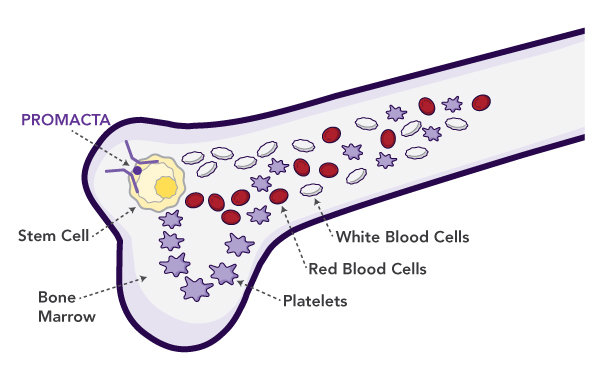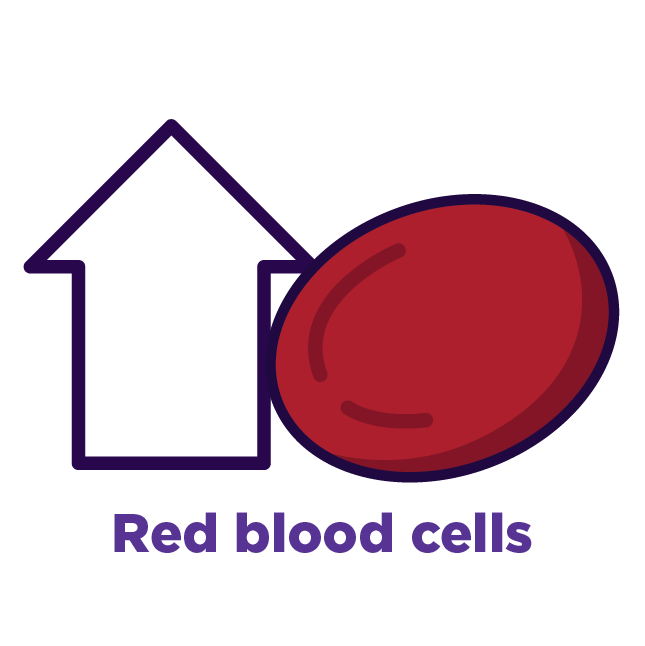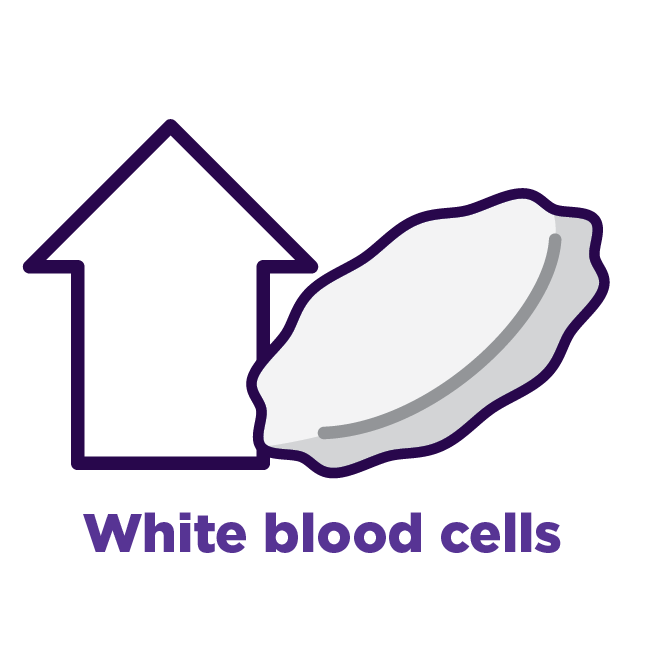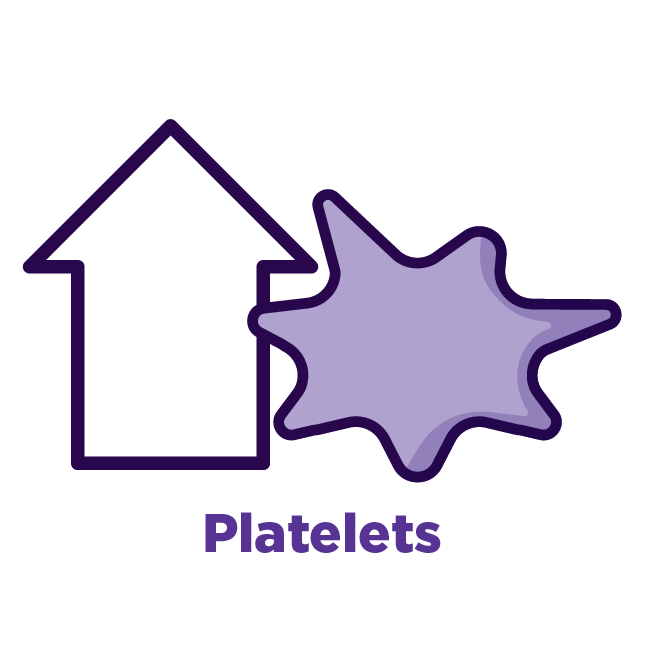Learn More About How PROMACTA May Work for You
See How PROMACTA Works in SAA
What is severe aplastic anemia (SAA)?
Aplastic anemia is a rare condition that stops the body from making enough blood cells.
Three types of blood cells are affected by this disease:
What is PROMACTA?
Adding PROMACTA to immunosuppressive therapy has been shown to be an effective first option for patients diagnosed with SAA.
PROMACTA is the first and only treatment for SAA proven to boost the production of blood cells in your bone marrow.
How does PROMACTA work?
PROMACTA is the only therapy for SAA thought to work inside the bone marrow. PROMACTA is believed to work in the stem cell together with the body’s natural process for creating new blood cells.
When your bone marrow is not producing the amount of blood cells your body needs, PROMACTA helps your body increase the production of:
How does your doctor know if PROMACTA is working?
Adding PROMACTA to immunosuppressive therapy has been shown to be an effective first option for patients diagnosed with SAA.
Your doctor is looking to get a “response” from treatment with PROMACTA. A response is when your blood tests show that your white blood cell, red blood cell, or platelet counts have increased.
If your white blood cells, red blood cells, and platelets all increase above a certain level, that is called “complete response”
If some, but not all, of your blood cell counts increase above a specific level, that is called a “partial response”
When complete and partial response rates are added together, that is called an "overall response"
Once you start responding to therapy, your doctor will monitor how long your response lasts—that is called “duration of response”
Be sure to talk with your doctor about your specific treatment goals.
Why should you start with PROMACTA?
PROMACTA and immunosuppressive therapy was proven in a clinical trial to show high response rates.
Based on 87 patients
If you are being prescribed PROMACTA, you should tell your doctor if you:
have liver problems
have a precancerous condition called MDS or a blood cancer
have or had a blood clot
have a history of cataracts
have had surgery to remove your spleen (splenectomy)
have bleeding problems
are of Asian ancestry (such as Chinese, Japanese, Taiwanese, or Korean)
are pregnant or plan to become pregnant
are breastfeeding or plan to breastfeed
Be sure to tell your doctor about any other medications you may be taking, including prescription and over-the-counter medicines, vitamins, and herbal supplements.
During treatment with PROMACTA, your doctor will have you go for routine bloodwork and vision monitoring.
What if your initial therapy did not include PROMACTA?
If your initial therapy does not work, your doctor may choose to put you on PROMACTA alone.
A clinical study showed that PROMACTA was effective after other treatments failed.
In the study:





